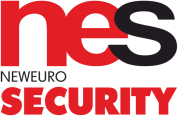In an ever-changing world where security and access management are paramount, access control systems have become an indispensable part of modern living and working environments. Access control systems play a crucial role in safeguarding properties, data, and individuals by regulating and monitoring entry and exit points. This comprehensive guide explores the various aspects of access control systems in the UK, from their functionality to their applications, and highlights the benefits they bring to different sectors. Whether you are a homeowner, a business owner, or a public institution, understanding access control systems can empower you to make informed decisions to safeguard your premises. Let’s delve into the world of access control and discover how these systems are revolutionising security in the UK.
Understanding Access Control Systems
At its core, an access control system is a mechanism that grants or restricts access to physical locations, digital assets, or confidential information. By utilizing various authentication methods, access control systems ensure that only authorised individuals can enter specific areas or utilize specific resources. These systems have evolved significantly from traditional lock and key approaches to sophisticated electronic solutions, making access management seamless, efficient, and secure.
Types of Access Control Systems
Access control systems come in various types, each tailored to suit specific requirements and environments. The primary types of access control systems include:
- Card-based Access Control: Utilizes swipe cards or proximity cards to grant access.
- Biometric Access Control: Uses unique physical attributes like fingerprints, iris scans, or facial recognition for authentication.
- Keypad Access Control: Requires users to input a PIN or password for access.
- Token-based Access Control: Employs electronic tokens or key fobs for authorization.
- Mobile-based Access Control: Utilizes smartphones or mobile apps for access management.
- Multi-factor Authentication (MFA): Combines multiple authentication methods for enhanced security.

Key Components of Access Control Systems:
To understand how access control systems function, it is essential to know their key components:
- Credentials: The unique identifiers used for authentication, such as cards, biometric data, or PINs.
- Readers: Devices that read the credentials and verify the user’s identity.
- Control Panel: The central processing unit that manages access and communicates with other system components.
- Locks: Physical mechanisms that secure doors or entry points.
- Access Control Software: The software that manages the system, grants access, and generates reports.
Benefits and Advantages of Access Control Systems
Access control systems offer a myriad of benefits, making them invaluable assets for both domestic and commercial settings. Some key advantages include:
- Enhanced Security: Restricting access only to authorised personnel minimises the risk of unauthorised entry or data breaches.
- Improved Productivity: Streamlined access management eliminates time-consuming manual processes, boosting overall productivity.
- Comprehensive Audit Trail: Access control systems maintain detailed records of entry and exit, aiding investigations if needed.
- Remote Management: Many modern access control systems can be remotely managed and monitored, providing convenience and flexibility.
- Scalability: These systems can adapt to changing requirements and accommodate future expansion.
- Cost-effectiveness: Reduces costs associated with physical keys, rekeying, and security personnel.
Access Control for Residential Properties
In residential settings, access control systems offer a layer of protection and convenience for homeowners. Keyless entry and remote access management allow residents to control access to their property effortlessly. Residents can grant temporary access to guests, delivery personnel, or service providers, enhancing security without compromising on accessibility. Moreover, modern access control systems often integrate with home automation and smart devices, providing a seamless, connected living experience.
Access Control for Commercial Buildings
Commercial establishments benefit significantly from access control systems, particularly those with multiple entry points and high foot traffic. Access control enhances the safety of employees and visitors while preventing unauthorised access to sensitive areas. In office settings, access control can be customised based on job roles, granting access only to relevant sections of the building. Moreover, commercial access control systems can seamlessly integrate with other security components, such as CCTV cameras and alarm systems, creating a comprehensive security infrastructure.
Access Control for Educational Institutions
Educational institutions are responsible for the safety of students, staff, and visitors. Access control systems play a crucial role in regulating entry and exit points, securing sensitive areas, and responding quickly to emergencies. These systems can also facilitate attendance tracking and provide a comprehensive view of the institution’s security status. Access control solutions can be tailored to suit various educational settings, from primary schools to universities, enhancing the overall safety and well-being of the learning community.
Access Control for Healthcare Facilities
Hospitals, clinics, and healthcare facilities handle sensitive patient information and valuable medical equipment. Implementing access control systems helps ensure that only authorised medical personnel can access restricted areas, safeguarding patient privacy and enhancing medical asset security. Moreover, access control can streamline visitor management and limit access to certain wards or treatment rooms, reducing the risk of unauthorised interactions with patients.
Access Control for Government and Public Sector
Government offices, public institutions, and critical infrastructure require robust access control solutions to safeguard national security and protect sensitive information. These systems help monitor and regulate access to government premises, ensuring that only authorised personnel can enter secure areas. Access control in the public sector can range from securing government buildings to managing entry to public events or locations, all with the aim of ensuring safety and security for citizens.

Integrating Access Control with Other Security Systems
One of the key strengths of modern access control systems is their ability to integrate seamlessly with other security components. By combining access control with video surveillance, intercom systems, and intrusion alarms, organisations can create a comprehensive security ecosystem that provides real-time insights into potential threats. Integration enables a swift response to security incidents and improves overall situational awareness.
Factors to Consider When Choosing Access Control Systems
Selecting the right access control system requires careful consideration of various factors, including:
- Security Requirements: Assess the level of security needed for your premises and the sensitivity of the areas to be secured.
- Scalability: Choose a system that can accommodate future expansion or changes in requirements.
- User-friendly Interface: Opt for an interface that is easy to use and navigate for seamless access management.
- Integration Capabilities: Ensure that the system can integrate with other security components in your infrastructure.
- Compliance and Regulation: Verify that the chosen system adheres to relevant industry standards and legal requirements.
Installation and Implementation of Access Control Systems:
The successful implementation of an access control system is crucial for its effectiveness. Professional installation ensures that the system is set up correctly and is optimised for its intended purpose. Expert technicians can advise on the ideal placement of access points and readers, ensuring smooth access for authorised users while maintaining robust security.
Maintenance and Support for Access Control Systems
Regular maintenance is essential to keep access control systems running optimally. Scheduled inspections, software updates, and equipment checks prevent potential issues and ensure the system’s reliability. Engaging with a reliable service provider for ongoing maintenance and support ensures that any arising problems are addressed promptly, minimising downtime and potential security vulnerabilities.
Ensuring Data Privacy and Security in Access Control
As access control systems handle sensitive data and personal information, data privacy and security are of paramount importance. Implementing encryption, firewalls, and user authentication measures helps safeguard data from unauthorised access. It is essential to partner with a service provider that prioritises data privacy and complies with relevant data protection regulations.
Future Trends and Innovations in Access Control Systems
The world of access control is continually evolving, driven by advancements in technology and growing security demands. Some future trends and innovations in access control systems include:
- Cloud-based Access Control: Leveraging cloud technology for remote management and scalability.
- Mobile Credentialing: Using smartphones as credentials for convenient and contactless access.
- Artificial Intelligence (AI) Integration: Enhancing security with AI-powered analytics and facial recognition.
- Biometric Advancements: Improving accuracy and usability of biometric authentication methods.
- Enhanced Interoperability: Seamless integration between various access control and security components.
Partnering with Nes Security for Expert Access Control Solutions
As a trusted security solutions provider, Nes Security offers tailored access control systems that cater to the unique needs of each client. Nes Security’s team of experienced professionals ensures seamless installation, integration, and ongoing support to guarantee the reliability and efficiency of your access control infrastructure. With a commitment to data privacy, industry compliance, and the latest security innovations, Nes Security is your partner in safeguarding your premises and assets with state-of-the-art access control solutions.
Access control systems play a vital role in ensuring the safety and efficiency of various settings, from residential properties to commercial buildings and public institutions. By understanding the different types of access control systems, their components, and the benefits they bring, you can make informed decisions to protect your premises and assets. Nes Security’s expert access control solutions offer seamless integration, reliability, and data privacy to create a comprehensive security infrastructure that adapts to your unique requirements. Partner with Nes Security today to enhance security, streamline access management, and safeguard what matters most to you.


